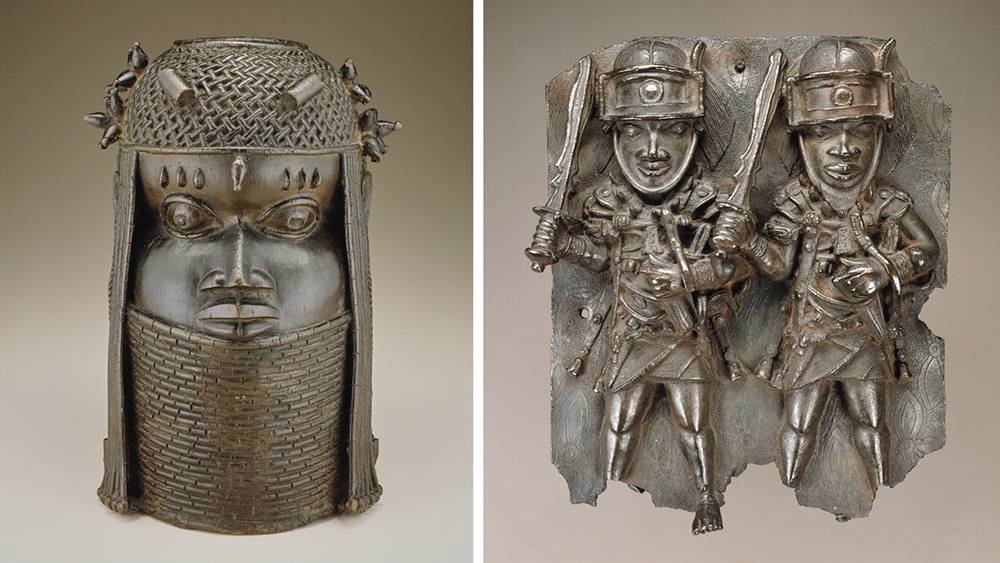According to the Washington Post, the Smithsonian National Museum of African Art in Washington, D.C. is apparently in talks about returning dozens of Benin Bronzes it owns in a possibly historic move. The repatriation agreement has yet to be completed, but according to the director of Nigeria’s National Commission for Museums and Monuments, a plan for the return might be signed next month.
The Benin Bronzes are a collection of artifacts plundered from the Kingdom of Benin in what is now Nigeria in 1897 by British forces. Those items eventually made their way to England, where they were dispersed around the world, ending up in some of the world’s most prestigious institutions, including the British Museum in London. Following Germany’s decision to begin repatriating its Benin Bronzes last year, several institutions have followed suit.
The Smithsonian would not be the first American museum to return its Benin Bronzes; the Metropolitan Museum of Art in New York has already returned two pieces from the set, and the Fowler Museum at the University of California, Los Angeles has begun talks to do the same. Given that the Met is thought to own over 160 of the Benin Bronzes, it has only returned a small percentage of them.
Read Also:
Black Culture: How Africans Descents Used Cornrows As Escape Map From Slavery Across South America
The Smithsonian’s repatriation would be broader, and it could encourage other American museums to return their Benin Bronzes. The arrangement would focus on the majority of the National Museum of African Art’s 39 Benin Bronzes, almost half of which have previously been on display. The museum had already stated that it was considering returning certain Benin Bronzes with “uncertain provenance” from its collection, but the newly reported agreement would formalize those plans. Donations had brought the Benin Bronzes to the museum.
The National Museum of African Art has been striving to change the way it displays the Benin Bronzes it has in recent years. Christine Kreamer, the museum’s deputy director, said in a panel discussion last year that the museum no longer used certain terminology in its wall text to characterize the violent means by which the Benin Bronzes were taken—for example, the phrase “punitive expedition” to describe the British troops’ purpose in coming to the Kingdom of Benin.
The report by the Washington Post was based on a statement by Nigeria’s National Commission for Monuments and Museums, which has previously handled Benin Bronze repatriations.
According to a Smithsonian representative, the initiative is part of a bigger overhaul of the museum’s collections policy to include ethical terms, as stated in an email to ARTnews. “Under the new policy, we will ask the Board of Regents to approve the repatriation to the National Commission of Monuments and Museums in Nigeria of Benin bronzes confiscated during a raid in 1897,” the spokeswoman added.
The representative stated, “One Benin Bronze will not be returned because it did not come from the 1897 attack.”
Nigerian officials have stated that once the Benin Bronzes are returned, some of them will be shown in Benin City, in the Edo Museum of West African Art, which was originally scheduled to open in 2025 when it was first announced two years ago. David Adjaye will design the museum, which he has described as an “undoing of the objectification that has occurred in the West through thorough reconstruction.”


1 comment
[…] A Walk Through Dash, The Ghanaian-Owned Unified Payment… Woman Crush Wednesday (WCW): Sarah Diouf The Smithsonian African Art Museum Plans To Return… How Kili And Neema, Maasai TikTokers Became Internet… African Culture: A Look Into Nigerian […]